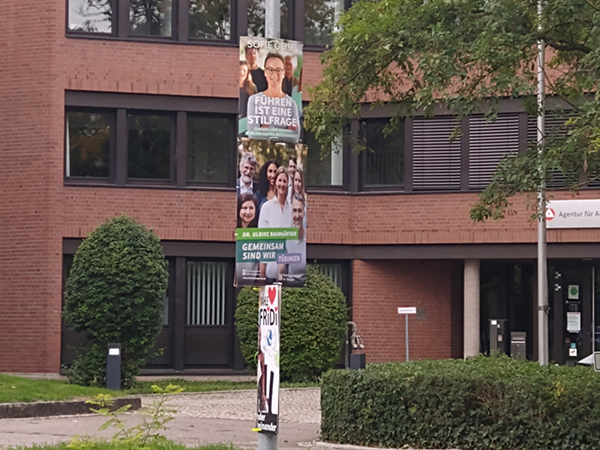By Ute Kaiser
More than every third person in Baden-Württemberg has a migration background. According to the State Statistical Office, this meant about 3.7 million people or 33.8 percent of the state’s population last year. In Baden-Württemberg, their proportion was above the nationwide average. There, 21.2 million people (26.0 percent of the population) had a migration background the previous year. This is an increase of 2.1 percent, however, according to the Federal Statistical Office, it was the weakest percentage increase since 2011. Based on the authority’s definition, someone has an immigration background if they themselves or at least one of their parents was not born with the German citizenship.
In 2019, 52 percent of people with a history of immigration in Germany were German citizens. A little more than half of these 11.1 million people held the German citizenship since birth. Almost two-thirds of all people with a migration background in Germany are immigrants from another European country or the descendants from those. 22 percent of people with a migration background came from Asia (4.6 million), while 3.2 million of them are related to the Middle East. Turkey (13 percent), Poland (11 percent) and the Russian Federation (7 percent) are “the most important countries of origin”, according to the Federal Statistical Office. Roughly five percent of migrants are related to Africa.
Almost every second person who immigrated to Germany did so to live with their family. Others were forced to flee their home country. Many immigrants came to earn money in Germany. In some industrial sectors a particularly large number of people with a migration background are employed. The Federal Statistical Office lists cleaning jobs at 55 percent of all employees with a migration background, warehousing as well as food and luxury food production with 38 percent each and elderly care with 30 percent. Employees from immigrant families were also “slightly overrepresented in relation to the total population (28 percent)” in the food service industry, according to the Federal Office. Generally, people earn less money in these careers than in the ones where people with a migration background are underrepresented: in medical professions, as school teachers or as employees with the police and in judiciary jobs.
There are initiatives in Germany that address and oppose the question asked by the data collection – where ancestors came from. Instead, critics who advocate diversity in society suggest asking how many people experience structural racism.
tun072801
Foto: tünews INTERNATIONAL; Mostafa Elyasian, 30.07.2020



